The Biggest Bluff: How I Learned to Pay Attention, Master Myself, and Win audiobook
Hi, are you looking for The Biggest Bluff: How I Learned to Pay Attention, Master Myself, and Win audiobook? If yes, you are in the right place! ✅ scroll down to Audio player section bellow, you will find the audio of this book. Right below are top 5 reviews and comments from audiences for this book. Hope you love it!!!.
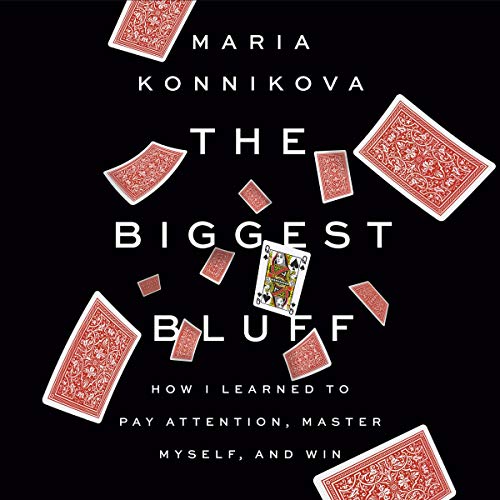
Review #1
The Biggest Bluff: How I Learned to Pay Attention, Master Myself, and Win audiobook free
In April, I read somewhere that Maria Konnikova had become a poker pro and won over $200k in prize money. Huh?! Same social psychology PhD Konnikova who wrote for The New Yorker? And ‘The Confidence Game’ and ‘Mastermind: How to Think Like Sherlock Holmes’? This seemed so farfetched that I just had to find out more. Especially since I’m a social psych aficionado and once was a semipro player myself. How did she train up to play well enough to win a big tourney in less than a year? Who taught her? Could a psych PhD trained in cognitive biases by the great Walter Mischel of marshmallow-test fame apply her knowledge to the game, or will she be a fumbling mortal like the rest of us? And, of all the pain one could inflict upon oneself in the name of journalism, why poker?! Does she enjoy sitting at a table for days on end with guys who frankly smell funny? So many questions. I had no choice but to pre-order the book to find out more.
When the ebook arrived last night, I consumed it one sitting. The tale of Konnikova going from 100% poker-nave novice to sponsored pro in a year is crackingly compelling. No triumphalist tale here. She’s candid about the painful process of improving via trial and error and error and error: impatience, misplaced pride, susceptibility to the biases she has written whole books about, and incomplete self-knowledge. But she also has the insight and humility to ask for help from a mindset coach, who apparently makes some difference (even though he quotes Freud, and it’s not exactly clear *how* he changes mindset — this here coach is curious to know). She endures enough crap — crippling self-doubt, insomnia, sexism, vicious migraines, perfidious allies, crude propositions by creepy dudes — that when she describes her first big tournament win, I threw my hands in the air and audibly woo-hooed. Her victory is every smart, hard-working underdog’s victory.
The heart of the book is her relationship with her poker coach, Erik Seidel, one of the game’s all-time greats. A deeply wise and caring mentor, he dispenses advice that is not just timeless but omni-applicable: “Telling bad beat stories is like dumping trash on your neighbor’s lawn: it just stinks. The goal of poker is not to win pots or chips but to make good decisions. Defeat teaches you more than victory. Don’t play a tournament if you don’t feel at your best.” We all wish we could have a mentor this good.
I also picked up on a lot of useful resources to improve my own game: the PioSOLVER software for game-theory optimized play; SnapShove; Phil Galfond’s Run It Once coaching site; and live streaming of real hands played by pros. These alone were easily worth the cover price.
What delighted me was Maria’s interweaving of the scientific literature into her narrative of training and tournament play: The description-experience gap will make our gut feelings trump numerical rules. Only a third of tournament hands go to showdown, and the best hand only wins 12% of the time. Facial tells are worse than useless; look at hand motions instead. Her long digression into the science and lore of superstition was particularly fun. If you have a lucky shirt or necklace, Konnikova makes a persuasive case for getting rid of it.
This is also a book about entrepreneurship: setting a goal, assembling a team, getting some funding, and executing on the plan. That funding part is pretty essential, because hey, world-class poker training don’t come cheap. Poker coaches can charge hundreds of dollars an hour, well beyond the reach of mere mortals without a substantial bankroll or publisher’s advance. This is a detail I wish the book shared more about.
Finally, there’s much dishy poker lore here. Konnikova has met some greats of the game – Paul Magriel, LuckyChewy, Ike Haxton, Patrik Antonius, and my personal hero “Action Dan” Harrington – and retells stories from legends like Doyle Brunson, Antonio Esfandiari and Phil Laak. Thanks to Maria, our home games will probably soon feature the silly but fun sides bets of the Lodden Game.
Even though the bits of poker strategy Konnikova shares are incidental to the storytelling and not the book’s main show, I learned more about the psychology of my own game from this book than dozens of pure strategy books I’ve read. Besides being a compelling tale, ‘The Biggest Bluff’ is about how seemingly unlikely results can come within reach through persistence, planning, systematic training, and mindset management. Konnikova has earned every bit of her results, one of them being this book. How about you? May the book serve as rocket fuel for your own farfetched daydreams, or that of your favorite budding entrepreneur.
— Ali Binazir, M.D., M.Phil., Happiness Engineer, poker therapist, executive coach and author of
The Tao of Dating: The Smart Woman’s Guide to Being Absolutely Irresistible
, the most-highlighted book in Amazon Kindle Store, and
Should I Go to Medical School?: An Irreverent Guide to the Pros and Cons of a Career in Medicine
PS: Lest you think that this review is an endorsement of a career in poker, be forewarned: do not try this at home. First off, you cant get someone like Erik Seidel to coach you in poker theyre just not available. And if you did get him, to afford him youd need be so rich that you wouldnt need to play poker in the first place. You do not have a supremely supportive spouse who will totally understand your need to travel to tournaments for 9 months out of the year. And you probably arent as smart and hardworking as Maria.
Most important, poker is no way to make a living. Spoiler alert: Maria did well in her first year, but went negative in her second year. Have you ever had a job where you worked 40 hrs a week, and made *negative* money? Well, in poker, that happens all the time. Even the best of the best go dead flat broke, regularly.
But beyond the financial swings, its the emotional swings that crush. Every time you have a seemingly lock hand and get some chump to call you, only to see him hit two perfect cards to beat you: you will remember those forever. Your brain will become a Hall of Pain of micro-PTSD episodes of bad beats and cosmically unfair tournament eliminations. And after every tourney you lose, which is pretty much all of them, youll be no fun to be around for a day or two. I love the game, too, but poker is hard on the soul.
Ultimately, heres the reason why you should not become a poker pro: even if you do spectacularly well, you will have only done one thing — won at poker. Sure, the money can be nice. But you will not have discovered a new drug to cure a child, composed a poem that people will recite 200 years hence, planted a forest, or led a movement of social progress. Getting really good at poker requires your complete devotion, to the exclusion of almost all else. So if youre smart enough to be good at poker, perhaps you have other options to make a more meaningful contribution to humankind instead.
Review #2
The Biggest Bluff: How I Learned to Pay Attention, Master Myself, and Win audiobook streamming online
I ordered this book because the author’s training in psychology suggested that her research on poker might shed some light on game theory, which not only bears directly on poker but also on economics and personal behavior. The book was a major disappointment. It consists primarily of the author’s summaries of conversations with her mentor and anemic summaries of her poker games. The book is lacking substance; it’s like reading a diary rather than a serious investigation of decision making. I cannot recommend.
Review #3
Audiobook The Biggest Bluff: How I Learned to Pay Attention, Master Myself, and Win by Maria Konnikova
The Biggest Bluff is not really about poker. Or it is about poker, but only as a means to something deeper.
Maria Konnikova is a psychologist whose personal predilection is to study the question of how much control we have over our lives. This of course spawns a lot of other questions: Are successful people successful because of luck or good choices? Do superstitions help us overcome the whims of fortune or succumb to them? How much personal agency are women denied by Western culture?
She explores these questions by relating her year of being trained by the best in the game of poker. For Konnikova, the game is important, but more important is it as a metaphor of life. There is the drawclearly chanceand there is the bettingclearly decision. But where success falls into the mix of these is nearly as complicated as success in life.
I wont spoil the book by citing the authors answers but suffice it to say that she brings a new and unique perspective to these age old questions. As someone whose professional work deals with chance on a daily basis, I found the book fascinating even though I have almost no interest in poker.
If you are interested in a mix of psychology, philosophy and game theory in an effort to shed new light on one of mans perennial questions than you will be delighted by the Biggest Bluff. Those looking for poker tips should, however, choose another book.
Review #4
Audio The Biggest Bluff: How I Learned to Pay Attention, Master Myself, and Win narrated by Maria Konnikova
I am a huge poker fan and an especially big Erik Seidel fan. Erik served as the authors mentor, so I downloaded the book the second I could. To say its a disappointment would be a gross understatement Ive read the great ones like Jim Mcmanus Positivity 5th street and its ten times better. If you are expecting a poker book, spend your money else where. This book is written by a wanna be Freud who thinks showing off her SAT results was her prime objective!
Glad I read it in the morning, because if I had read it at night I would have fallen asleep. Its not the worst book Ive ever read, Art Garfunkels autobiography was even worse, but Ive read over forty poker books and this is by far the worst one! DONT BUY IT
Review #5
Free audio The Biggest Bluff: How I Learned to Pay Attention, Master Myself, and Win – in the audio player below
I really loved this book and read it in two days. It would probably be rough going for someone who knows nothing about poker, but her insights are applicable to many of the types of decisions we all have to make. I don’t play poker but I think I have gained a lot from this book. A well-written book that would give almost anyone a lot to think about.
Recommend Books
Audiobook09 player
If the audio player does not work, please report to us, we will fix it as soon as possible (scroll up a little you will find the "REPORT CONTENT" button).


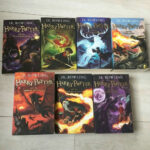
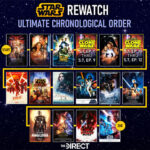
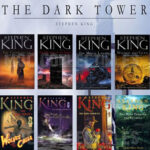
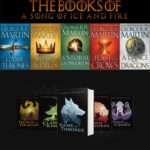
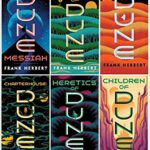
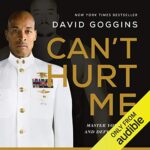
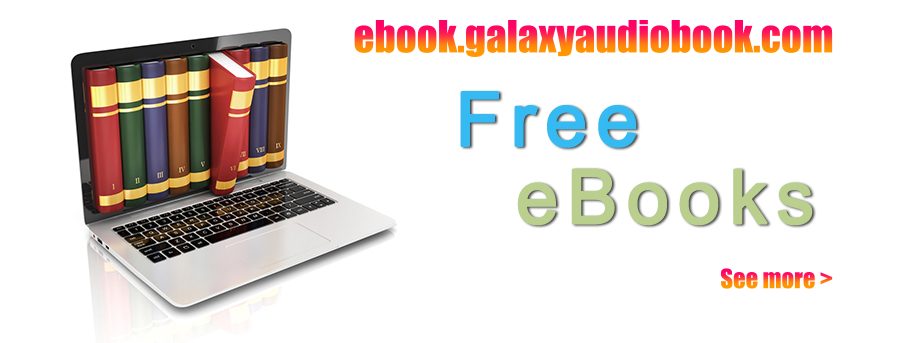



0 Comments: